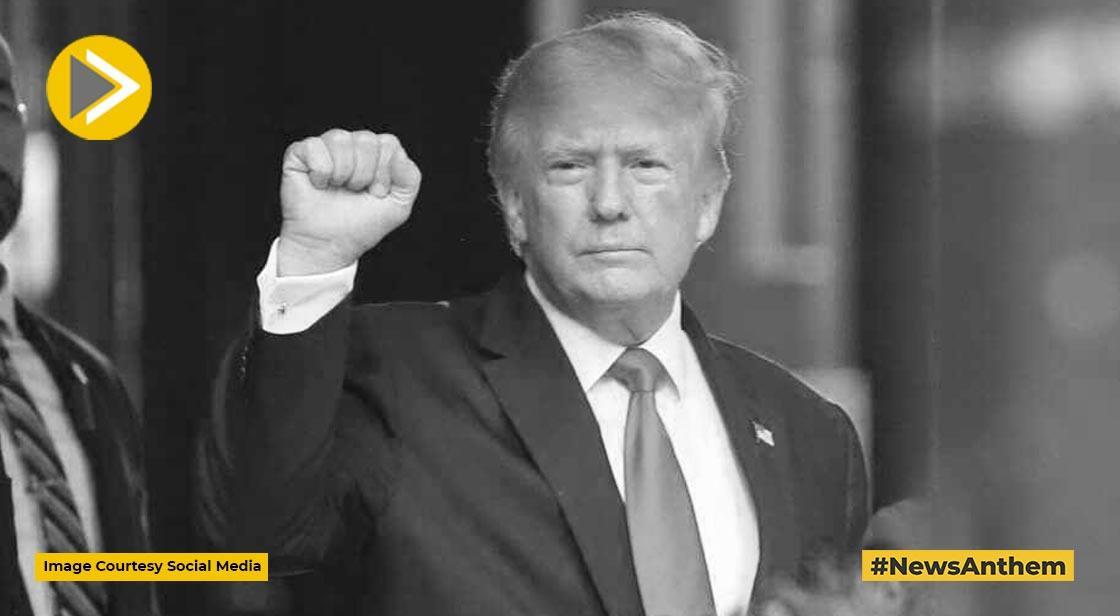Donald Trump’s 25% Auto Tariff: How It Will Reshape the Global Car Market

News Synopsis
US President Donald Trump has declared a 25% tariff on all imported cars and auto parts, set to take effect from April 3, 2025. This policy change will impact both fully assembled vehicles and specific auto components that are imported into the United States.
According to a report by Nomura, "the impact of these tariffs could be $3,700 (~8 per cent of ASP). With a 50 per cent pass on (4 per cent price hike), this could impact demand by 8 per cent or ~1 million vehicles (~16 million new car sales in 2024)."
These tariffs align with Trump’s broader objective of reducing reliance on China, restricting Chinese investments through third-party nations, and fostering a revival of the US manufacturing industry.
Breakdown of the New US Tariff Structure
Key Components of the Tariff Policy
-
25% tariff on all light vehicles imported into the US, effective from April 3, 2025.
-
Auto parts subject to the same 25% tariff (Effective no later than May 3, 2025):
-
Engines and engine parts
-
Transmissions and powertrain components
-
Electrical components
-
-
USMCA-compliant auto parts remain tariff-free until the US Department of Commerce establishes a new system to assess non-US content in these parts.
Impact on Global Auto Manufacturers
Jaguar Land Rover (JLR)
-
US market exposure: In FY24, the US contributed around 23% to JLR's revenue and accounted for 26% of its total wholesale volume. By the first nine months of FY25, JLR's market exposure in the US had risen to 33%.
-
Manufacturing location risks: JLR primarily manufactures its vehicles in the UK, except for the Defender, which is made in the EU (comprising 25.9% of JLR’s US-bound volume in 9MFY25).
Impact on Auto Component Suppliers
Several Indian auto component suppliers have significant exposure to the US market, making them vulnerable to the new tariffs:
Major Auto Component Suppliers Affected
-
-
US Revenue Share: In FY24, 25% of the total consolidated revenue was recorded, with standalone revenue accounting for 35%. For the first nine months of FY25, these figures stood at 28% and 37%, respectively.
-
-
-
US Revenue Share: 40% in FY24 (43% in 9MFY25).
-
-
-
US Revenue Share: 18% in FY24.
-
US Manufacturing Presence: Alabama, Michigan, and Houston – allowing potential ramp-up of local production to mitigate tariff impact.
-
Tyre Industry and Trade Tariffs
-
Balkrishna Industries reported that 18% of its FY24 revenue (16% in 9MFY25) came from the US market.
-
Current US import duties on Indian products range from 3.4% to 4.0%, while India imposes a higher tariff of 10-15% on US imports.
-
"We will wait for the fine print to understand if the 25 per cent tariffs apply to tyres," Nomura stated.
How Will This Impact US Car Demand?
According to Nomura, immediate consequences of the tariff implementation could include:
-
Significant price hikes by car manufacturers (OEMs), leading to decreased consumer demand.
-
Potential reciprocal tariffs imposed by other countries, adding further complexity to trade relations.
-
Concerns over trade agreements: The UK and India are currently in discussions with the US to explore possible exemptions or modifications to the tariff structure.
Challenges in Shifting Auto Manufacturing to the US
While shifting production to the US might seem like a logical alternative, it poses significant challenges:
Labour Cost Disparity
-
Average hourly wage:
-
India: $1.5
-
Mexico: $2.5
-
US: $15 (5x that of India)
-
-
Shop floor wages in the US are substantially higher than in India or Mexico, making it costly for suppliers to relocate production.
Production Scalability Issues
-
If multiple manufacturers attempt to relocate their production simultaneously, labour shortages could further escalate wages.
-
Currently, suppliers enjoy cost advantages through scale in offshore locations, a benefit they might lose if forced to manufacture domestically.
Broader Economic Impact
Steel and Aluminium Tariffs
-
The US has also imposed import duties on steel and aluminium, further increasing production costs for auto manufacturers.
-
Nomura projects that establishing a new automobile manufacturing plant in the United States may require approximately two years.
Inflation and Consumer Sentiment
-
"Any sharp rise in tariffs across other consumer products may impact inflation, raise interest rates and affect US consumer sentiment," stated Nomura.
-
Recent reports indicate that US consumer sentiment is already at a 12-year low, which could dampen overall car sales in the long term.
Conclusion
Trump's 25% tariff on auto imports is set to reshape the industry, affecting manufacturers, suppliers, and consumers alike. While the move is intended to bolster domestic production, it brings significant challenges, including rising costs, potential labor shortages, and declining demand. Industry players must carefully assess their long-term strategies to mitigate risks and maintain profitability in the evolving trade landscape.









